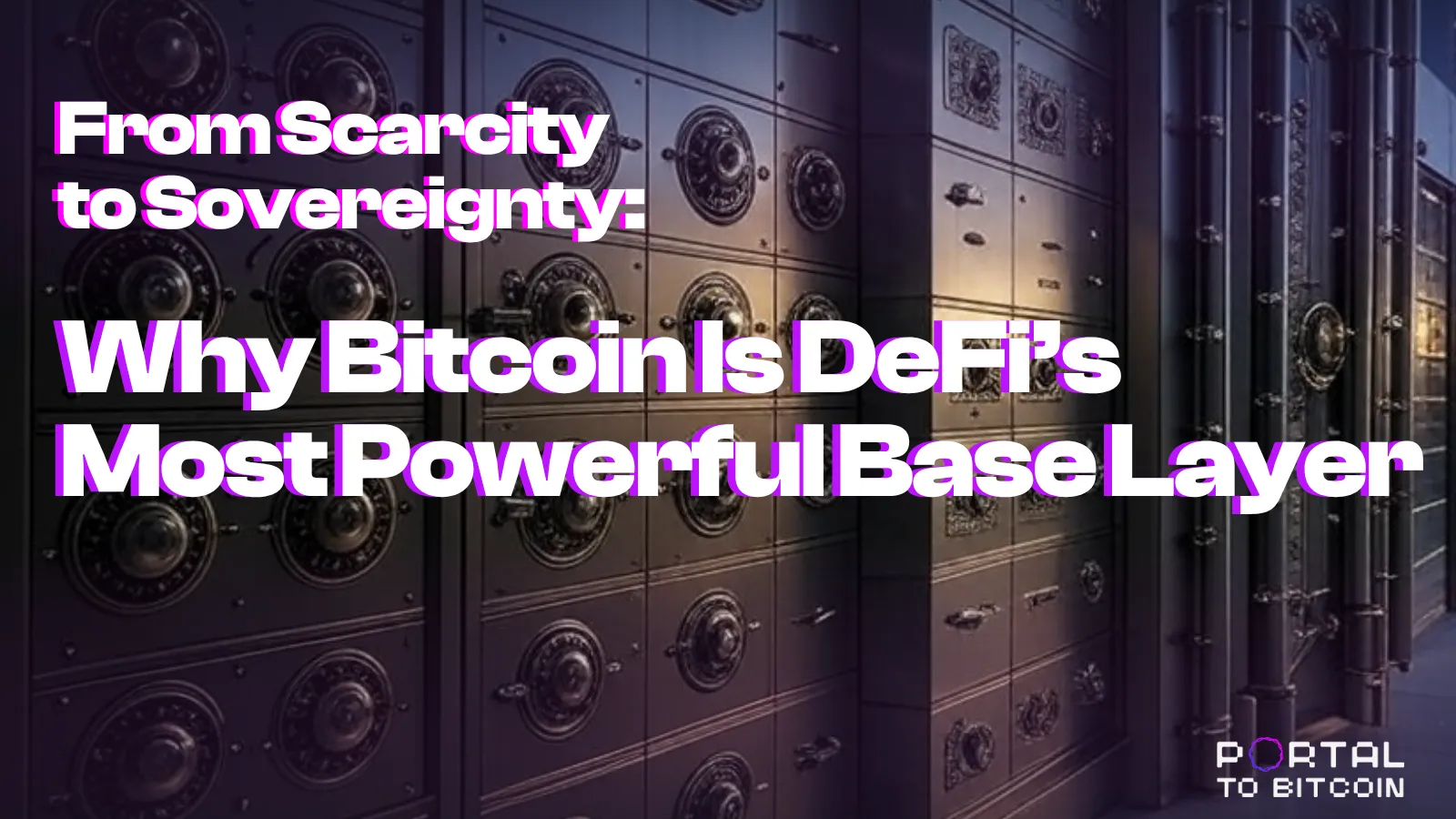From Scarcity to Sovereignty: Why Bitcoin Is DeFi’s Most Powerful Base Layer

Bitcoin is the world’s most secure and decentralized financial asset. It has weathered every market cycle, outlasted competitors, and stood firm against all attempts to compromise its core principles. Yet despite this resilience, Bitcoin has remained largely inactive within decentralized finance (DeFi).
While Ethereum, Solana, and other smart contract platforms have led DeFi innovation, Bitcoin has appeared disconnected from that momentum. Not because it lacks potential, but because it lacked purpose-built infrastructure.
That is beginning to change.
Scarcity Isn’t a Limitation. It’s the Foundation.
Bitcoin’s fixed supply of 21 million coins is often seen as restrictive. But in a world of infinite issuance, inflationary token models, and synthetic financial layers, Bitcoin’s scarcity is exactly what gives it strength.
Scarcity builds credibility. It creates dependable collateral. It offers a neutral value standard in ecosystems where monetary discipline is often missing.
Bitcoin doesn’t need to earn yield to remain valuable. But when that value can be put to work without compromising custody, it becomes the most trusted foundation for a decentralized financial system.
Sovereignty: The Missing Piece in Traditional DeFi
Most DeFi ecosystems rely on bridges, custodians, multisignature schemes, or upgradeable contracts. These elements introduce trust and risk at multiple layers.
Bitcoiners reject those trade-offs. They prioritize full self-custody, transparency, and permissionless access. This is why many Bitcoin holders have stayed away from DeFi. Not because they’re uninterested, but because the terms are unacceptable.
Wrapped Bitcoin, custodial vaults, centralized exchanges, and third-party bridges introduce systemic risk. If Bitcoin is to enter DeFi, it must be native, custodyless, and trust-minimized.
Bitcoin Stands Strong, But Needs Tools to Move
Portal to Bitcoin is being developed to meet this challenge. It is a custodyless, cross-chain infrastructure currently in testnet, designed to connect Bitcoin directly to Ethereum and Solana (with many more blockchains to come) without bridges, wrappers, or third-party control.
At its core is BitScaler, an execution layer that enables atomic swaps between Bitcoin and other blockchains. These swaps are either completed securely or the funds are automatically returned to the sender, eliminating counterparty risk.
BitScaler uses a hub and spoke model. Validators coordinate settlement, while liquidity providers interact directly with the market. This design helps mitigate front-running and MEV, without requiring changes to Bitcoin’s base layer.
Through this architecture, Bitcoin can interact with DeFi while preserving its fundamental principles.
Real Applications Taking Shape
Portal’s testnet is already demonstrating how Bitcoin can evolve into a productive, sovereign layer within DeFi. Some of the proposed use cases include:
- Bitcoin-backed stablecoins collateralized by native BTC instead of wrapped tokens
- Liquidity provisioning across Bitcoin, Ethereum, and Solana, directly from user wallets
- Real-world asset access like tokenized treasuries, real estate, and commodities, without custody loss
- Cross-chain trading strategies that enable seamless movement of capital across ecosystems
- Validator coordination to align incentives and support non-custodial trading infrastructure
These features are under active development and testing. They are designed to move Bitcoin beyond passive storage into a productive, multi-chain role, all while maintaining sovereignty and enhancing its security through increased network activity.
Why Bitcoin Is Positioned for the Long Term
Bitcoin doesn’t move fast. It moves with purpose. Its architecture resists fads and prioritizes durability, neutrality, and censorship resistance.
As DeFi evolves, demand for sound, secure, and trustless collateral will continue to grow. Bitcoin is naturally positioned to meet this need, not by changing its design, but by extending its utility while preserving its core.
Portal is not trying to rewrite Bitcoin. It is building infrastructure that allows Bitcoin to participate in DeFi directly, natively, and without compromise.
Explore Portal Testnet
Try Portal’s V2 testnet and earn potential rewards for exploring the future of Bitcoin Defi:
👉 https://quests.portaltobitcoin.com
About Portal to Bitcoin
Portal to Bitcoin, formerly known as Portal DeFi, is a trust-minimized protocol designed for fast, secure atomic swaps between Bitcoin and other blockchain assets. Powered by BitScaler, Portal enables non-custodial trading across multiple blockchains without relying on intermediaries. With backing from Coinbase Ventures, OKX Ventures, and Arrington Capital, Portal ensures user funds are always secure without the need for bridging or wrapping, focusing on providing deep Bitcoin liquidity and enhancing trading efficiency.
For more information, visit Portal to Bitcoin. Follow us on Twitter (X), Discord, Medium, LinkedIn, and Telegram.